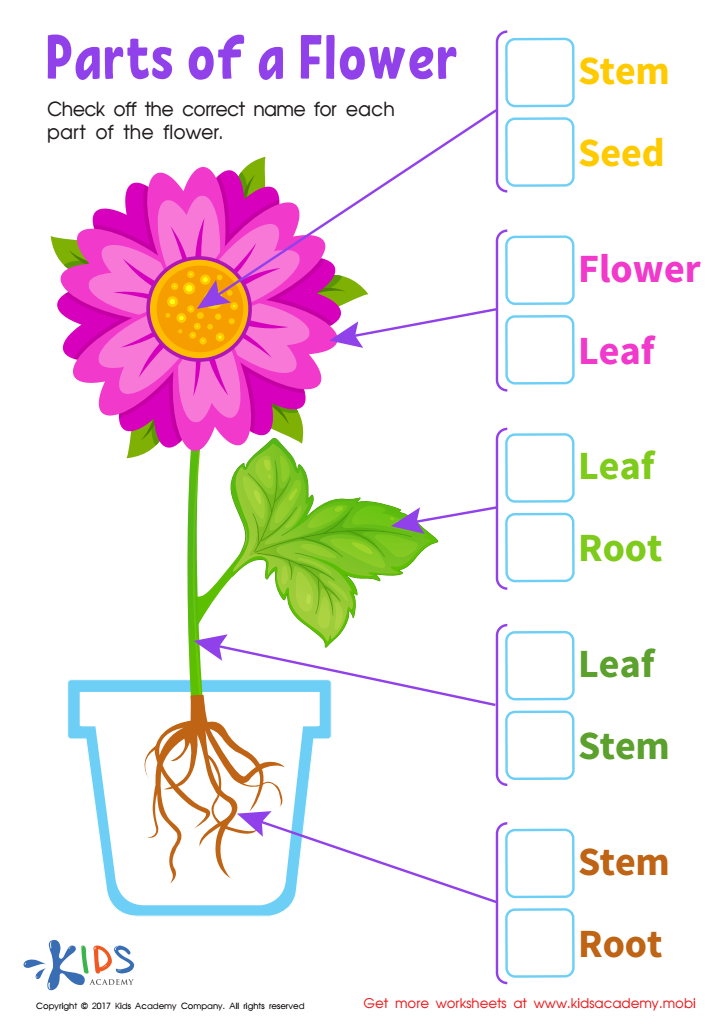Life Science Worksheets for Ages 5-7
3 filtered results
-
From - To
Introduce your young learners to the wonders of the natural world with our "Life Science Worksheets for Ages 5-7." Designed to awaken curiosity and understanding, these engaging printable sheets cover the essential aspects of life science. From exploring animal habitats and plant life cycles to observing weather patterns and seasonal changes, each worksheet offers fun, age-appropriate activities that make learning a delightful adventure. Perfect for classroom use or homeschooling, our worksheets are expertly crafted to enhance your child's knowledge and spark a lifelong love for science. Discover a world of endless learning possibilities and watch your young scientist thrive!


Parts Flower Printable


Herbivores Printable


Carnivores Worksheet
Parents and teachers should prioritize Life Science for children aged 5-7 as it lays a foundational understanding of the living world, fostering curiosity and critical thinking. Early exposure helps children develop a sense of wonder and appreciation for nature, which is crucial for cognitive development and environmental stewardship. By learning about plants, animals, and ecosystems, young learners cultivate observation skills, enhancing their ability to notice details and make connections in their everyday environment.
Life Science education also supports key developmental stages. At this age, children are naturally inquisitive, and structured scientific exploration nurtures this curiosity. Engaging with Life Science can improve language skills as kids learn new vocabulary and concepts, and it aids social skills through collaborative learning activities that encourage teamwork and communication.
Moreover, early Life Science lessons can pique long-term interest in STEM fields, providing a pipeline to future educational and career opportunities. It encourages problem-solving skills and the scientific method—posing questions, forming hypotheses, and conducting simple experiments. When children understand where food comes from, how animals live, and the basics of the human body, they develop informed perspectives on health, conservation, and ethical treatment of living creatures.
In sum, prioritizing Life Science for young learners creates informed, curious, and empathetic individuals with essential skills for lifelong learning and responsible citizenship.

 Assign to the classroom
Assign to the classroom





.jpg)






